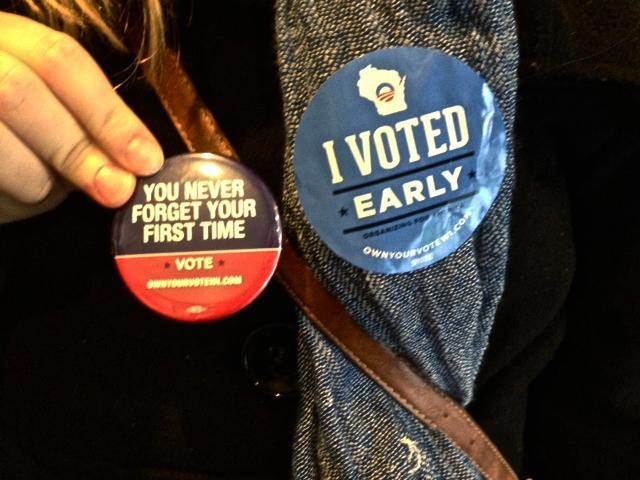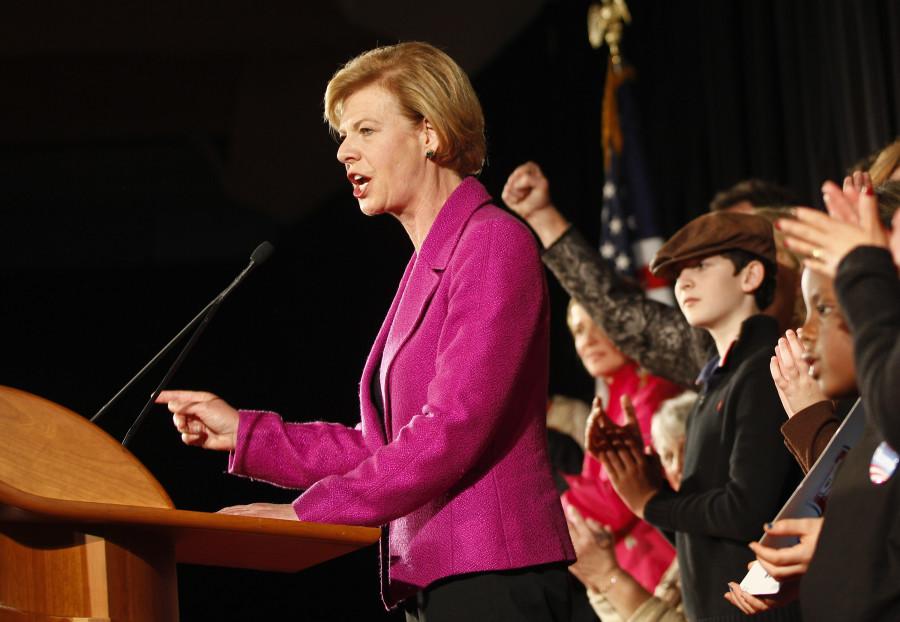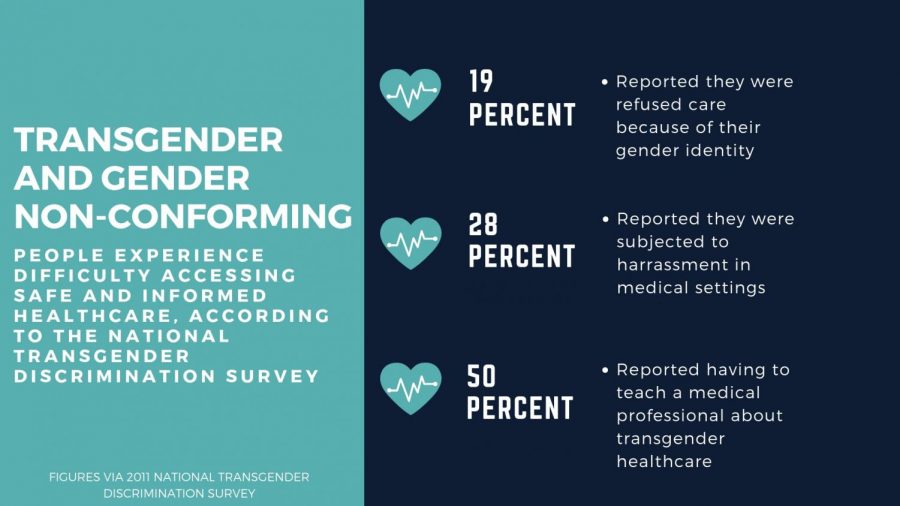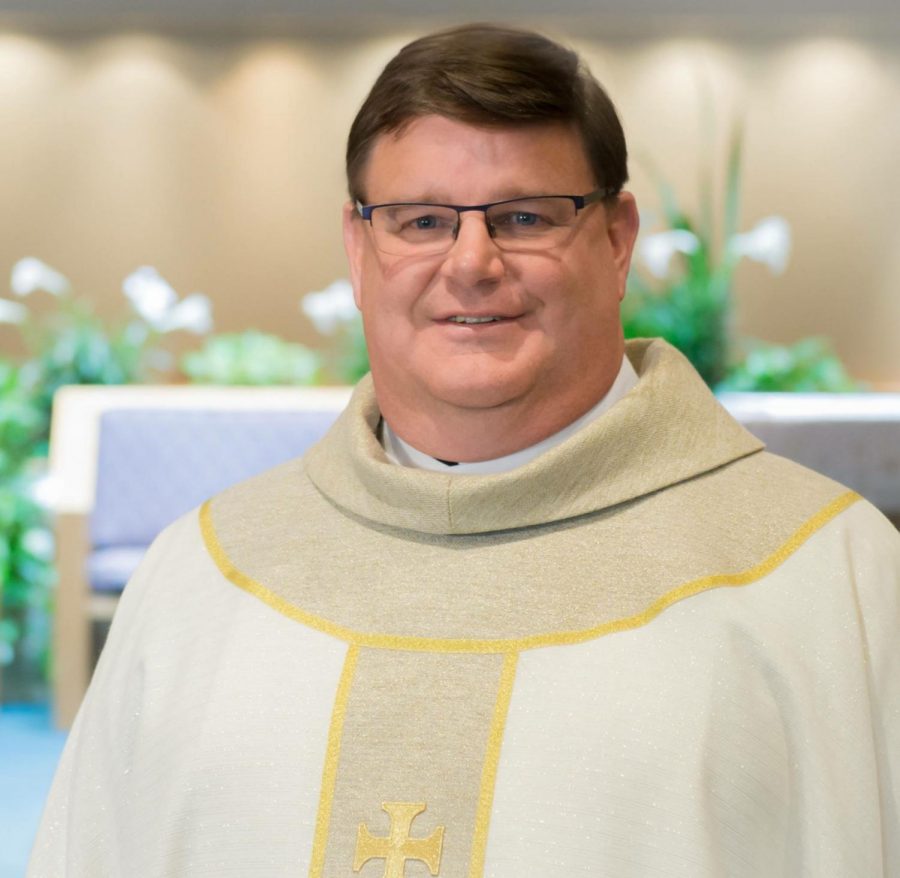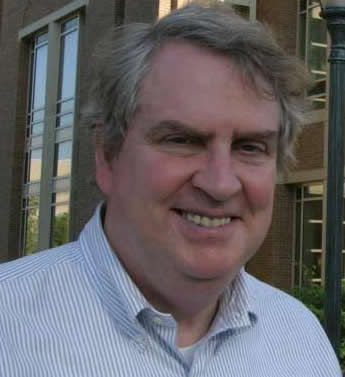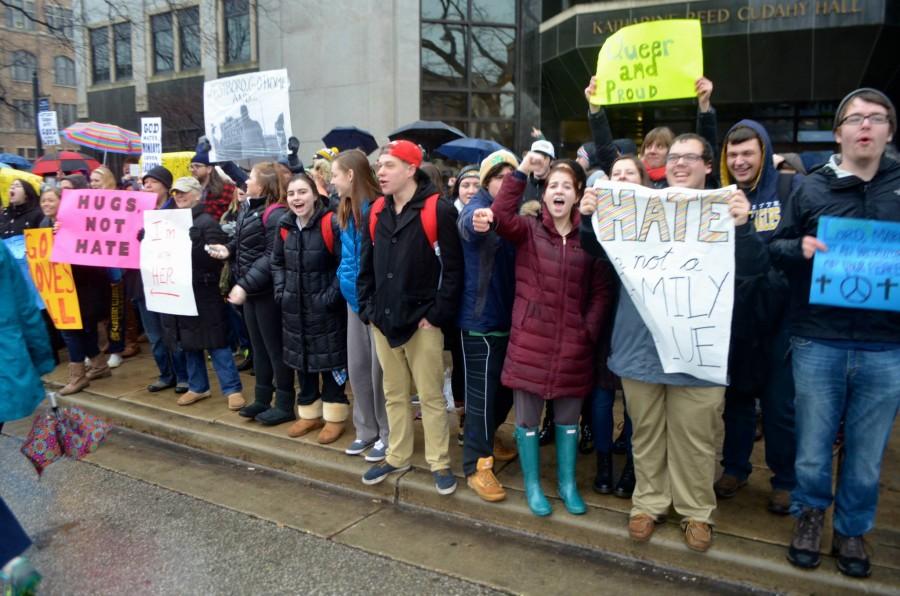 The election of Tammy Baldwin as Wisconsin’s junior senator marks the first time in history that an openly gay individual has been elected to serve in the U.S. Senate.
The election of Tammy Baldwin as Wisconsin’s junior senator marks the first time in history that an openly gay individual has been elected to serve in the U.S. Senate.
In addition to this, three states, Maine, Maryland, and Washington, voted to allow same sex marriage, joining Connecticut, Iowa, Massachusetts, New Hampshire, New York and Vermont. A referendum in Minnesota that sought to constitutionally ban same-sex marriage was defeated.
Responses to the election have been mixed in the LGBT community.
“Our Senate is slowly but surely starting to reflect its constituents,” said Nicole Cunningham, a member of Marquette’s Gender Sexuality Alliance organization. “It’s pretty incredible that, in 2004, we had tons of state referendums pass which banned same-sex marriage from their respective constitutions. Now, just eight years later, it passes in three states on a single day.”
Jolie McKenna, the executive director of the LGBT Center of Southeastern Wisconsin, said Baldwin’s sexual orientation shouldn’t matter.
“Much has been made of Tammy’s sexual orientation,” McKenna said in an email. “But orientation is a minor incidental concern in contrast to legislative ability or success in garnering coalition, in the same way that Illinois Representative Tammy Duckworth’s prostheses do not affect her ability to legislate. In the LGBT community, we simply consider Tammy Baldwin to be a smart, effective, progressive legislator. Whom she decides to spend her time with is her own business.”
According to the Gay & Lesbian Victory Fund, an organization that supports LGBT rights and donates to the campaigns of gay and gay-friendly politicians, Baldwin’s replacement in the House of Representatives, Mark Pocan, is also gay and will be joining five other openly gay representatives.
Wisconsin does not currently acknowledge same-sex marriages, but the state does recognize same-sex unions, albeit with limited rights compared to marriage.
“The general consensus is that the states should handle the issue, and that seems to be what (President Barack) Obama is advocating for,” said Emily Wright, a co-president of Marquette’s Gender Sexuality Alliance. “I think issues like non-discrimination should be at the federal level and that a marriage support law should also be at the federal level.”
The Catholic Church has continued to oppose the expansion of same-sex marriage.
“The meaning of marriage, though, cannot be redefined because it lies within our very nature,” said the Rev. Salvatore Cordileone, the Archbishop of San Francisco and a leader of the church’s opposition to gay marriage, in a statement released by the U.S. Conference of Catholic Bishops. “No matter what policy, law or judicial decision is put into place, marriage is the only institution that unites a man and a woman to each other and to any children born of their union. It is either this, or it is nothing at all.”
Despite the church’s opposition to same-sex marriages, supporters of LGBT rights remain optimistic.
“I honestly hope and pray that this civil rights push can be successful in the next 10 years,” Wright said. “Support for marriage equality is at its highest now; we just won four ballot measure struggles. We are moving forward, and very soon we will make solid and tangible progress.“


